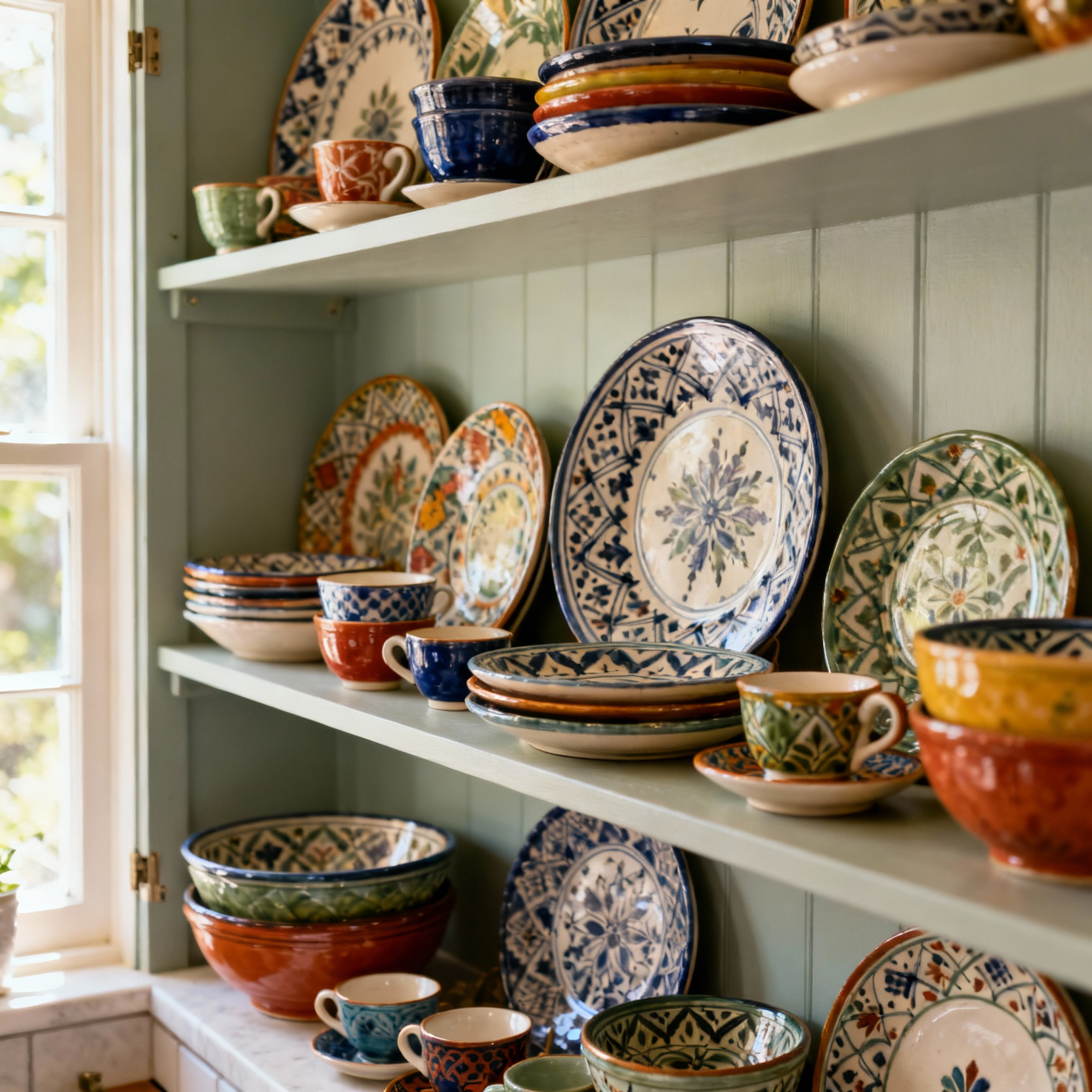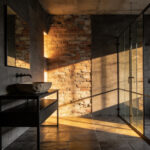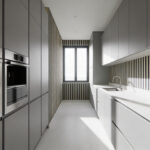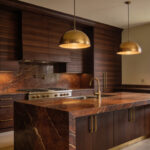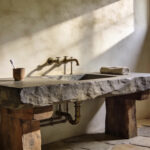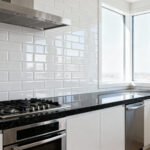I’ll never forget the kitchen in my first real apartment. It had good bones, I guess, but everything else was a symphony of beige—beige counters, beige floors, and beige cabinets. Standing there, mug in hand, I felt totally uninspired. We’ve all been in that spot, right? Where you look around a space that’s technically working but feels like it belongs to someone else. That little moment of realization—when you see your room not just as a set of features, but as a blank canvas—is exactly what separates an intentional, love-filled home from a space that’s just a collection of stuff.
As an art teacher, that “blank canvas” moment is my favorite part! It’s the starting point for all the fun. And after years of writing about design and tackling my own budget-driven projects, I’ve learned that creating a kitchen you adore has very little to do with how much money you spend. It’s about creativity, a bit of problem-solving, and the courage to try something new. So let’s roll up our sleeves. Here are 20 of my favorite ideas to get that kitchen decorating inspiration flowing, starting with the easiest wins and moving on to the projects that will make you feel like a design pro.
Easy Wins: Quick Kitchen Updates
Let’s start with the fun, fast stuff! These are the projects you can tackle in an afternoon that will give you an instant boost of joy and make your kitchen feel more like you.
1. Show Off Your Pretty Dishware
Seriously, why are we hiding our best stuff behind solid wood doors? Your plates, bowls, and mugs can be fantastic decorative elements. Showcasing your favorite pieces is a no-cost way to add instant personality and a pop of color. If you have open shelving, you’re already halfway there! If not, try taking the doors off one or two of your upper cabinets for an immediate open-shelf look (just store the doors safely so you can put them back on later!). Group items by color for a clean, cohesive feel, or mix everything up for a wonderfully eclectic vibe. I love stacking my everyday white plates and then leaning one colorful, patterned salad plate in front. It’s like a tiny, changeable piece of art.
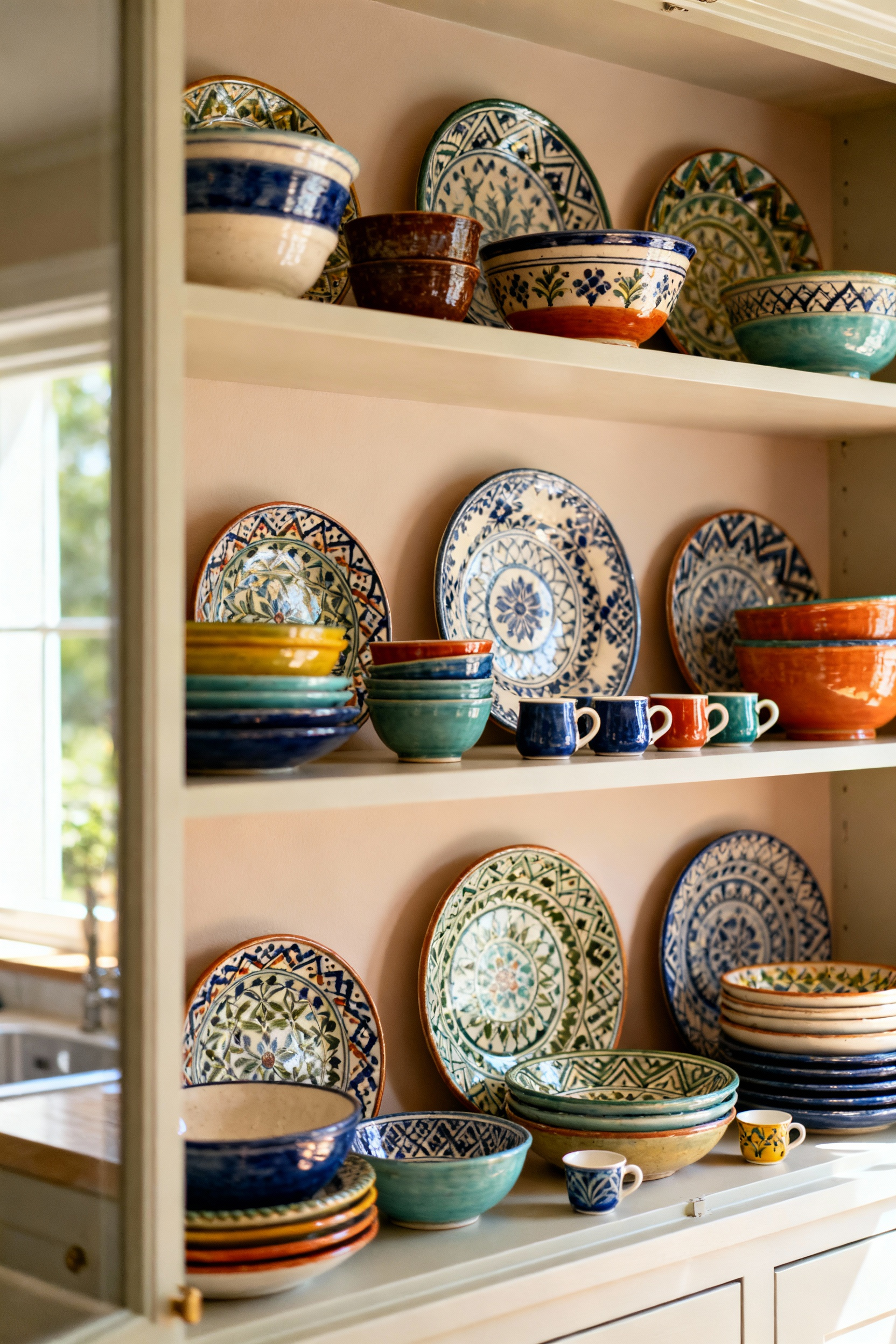
2. Add Under-Cabinet Lighting
This is my number one secret for making a kitchen look more expensive than it is. Under-cabinet lighting is a total game-changer, not just for chopping onions without casting a shadow, but for creating a warm, inviting ambiance. It makes your backsplash pop and gives the whole room a sophisticated glow in the evening. You don’t need an electrician for this one, I promise. You can find amazing battery-operated puck lights or peel-and-stick LED strips online or at any hardware store. They take about ten minutes to install. For the best effect, place the strips closer to the front of the cabinet, not pushed back against the wall. This lights up your whole counter evenly. It’s a small detail that delivers a huge, professional-looking impact.
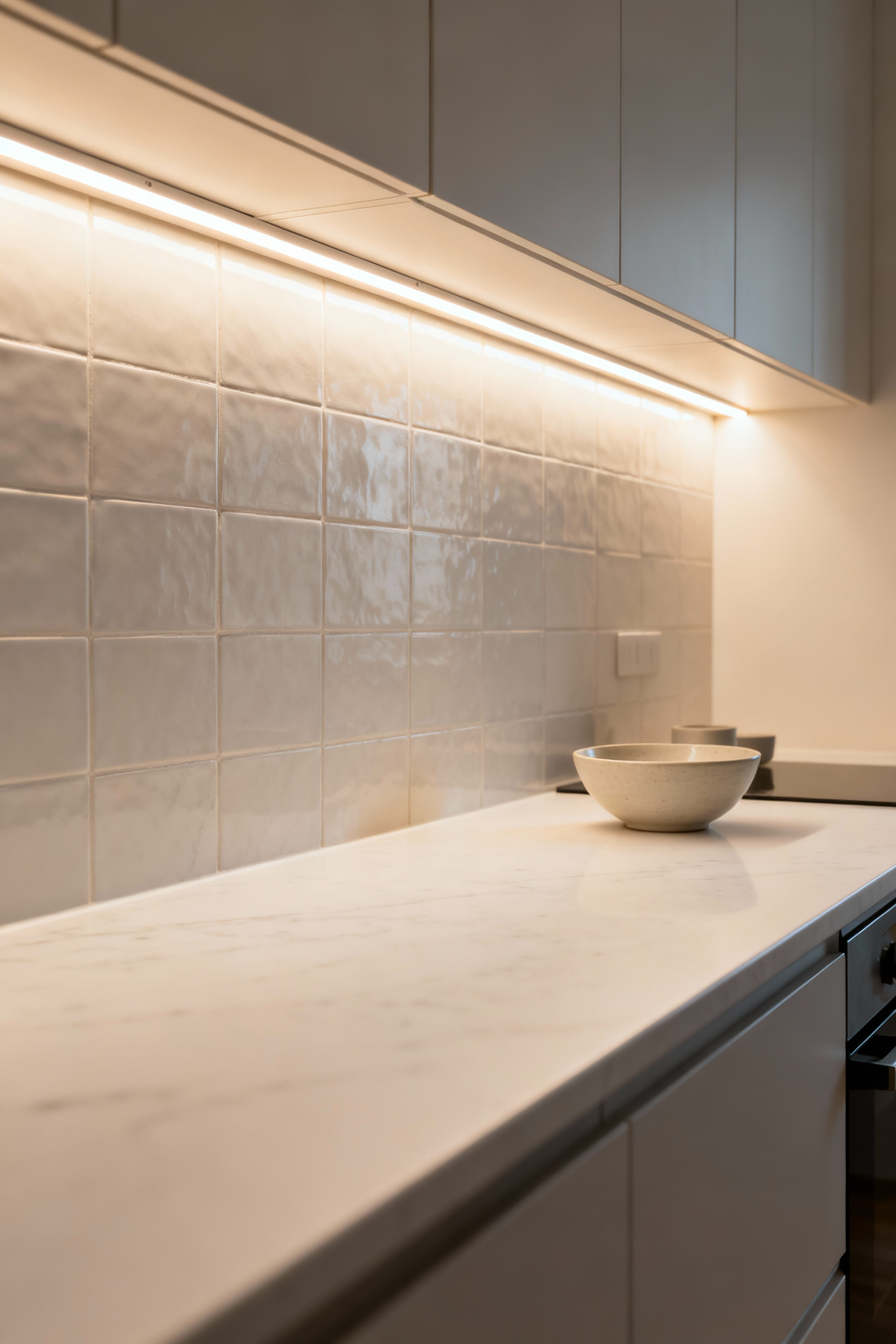
3. Paint Your Cabinets (and Swap the Hardware!)
Okay, stay with me here. This sounds like a huge job, but it’s the single most transformative DIY project you can do in a kitchen. A fresh coat of paint can take dated, dark wood cabinets and make them feel brand-new and bright. It just takes patience. The key to a professional finish is the prep work—it’s 90% of the job! Clean, sand, and prime everything before you even think about opening your paint color. I’ve learned from my own DIY projects that a good bonding primer is your best friend. For the hardware, this is your chance to add some jewelry. New knobs and pulls are a relatively small expense for a massive style upgrade. Look at flea markets or online specialty stores for unique options that you won’t see everywhere else.
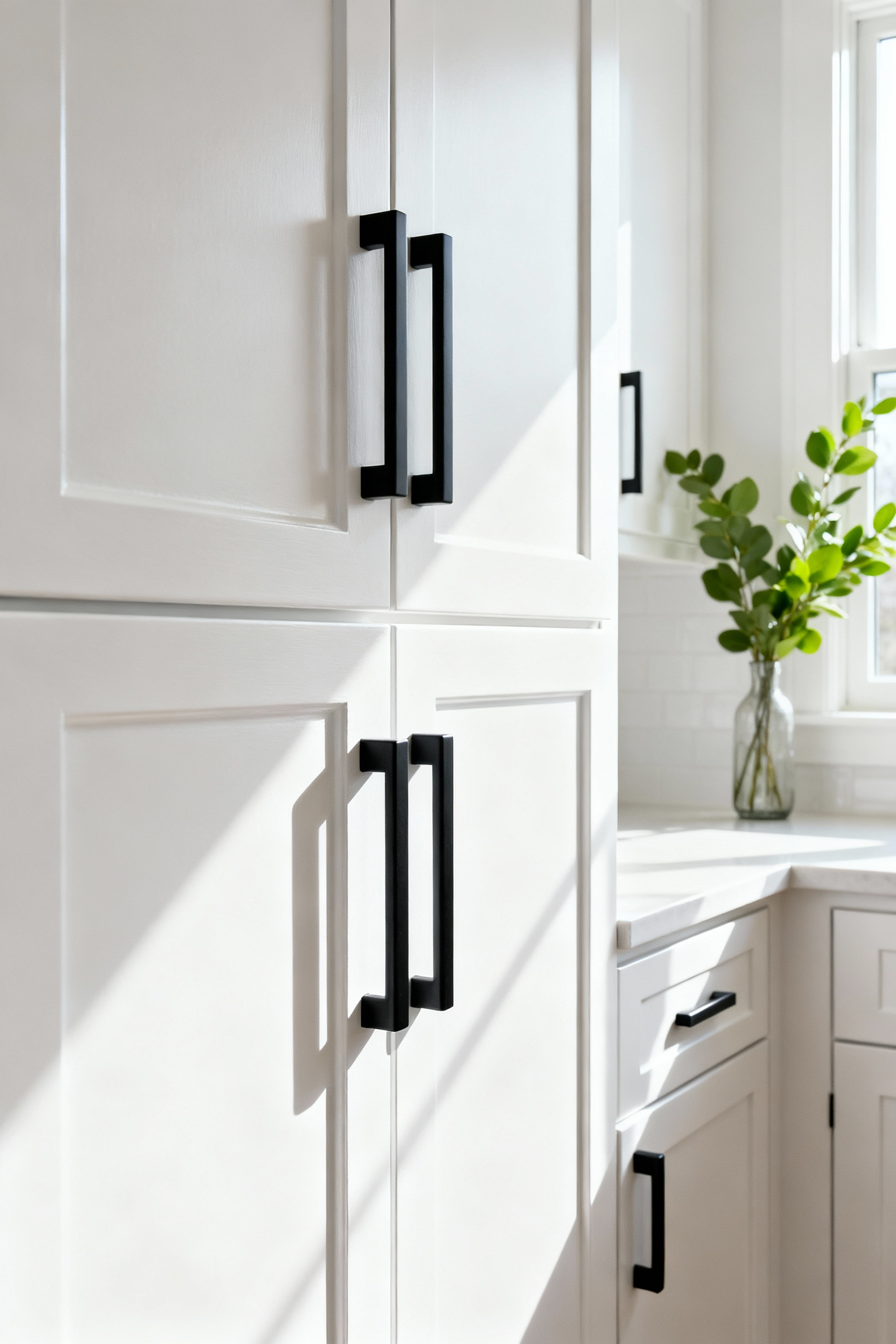
4. Put Down a Runner or Area Rug
Kitchens are full of hard surfaces—tile, wood, stone. Adding a soft textile like a rug immediately makes the space feel cozier and more finished. It’s also a fantastic way to introduce color and pattern without committing to something permanent. For long, narrow Galley Kitchens, a runner works miracles by drawing the eye down the length of the room, making it feel bigger. In my budget design work, I often recommend indoor-outdoor rugs for kitchens. They’re built to be durable and are super easy to clean—just take them outside and hose them off! Just be sure to use a non-slip rug pad underneath for safety.
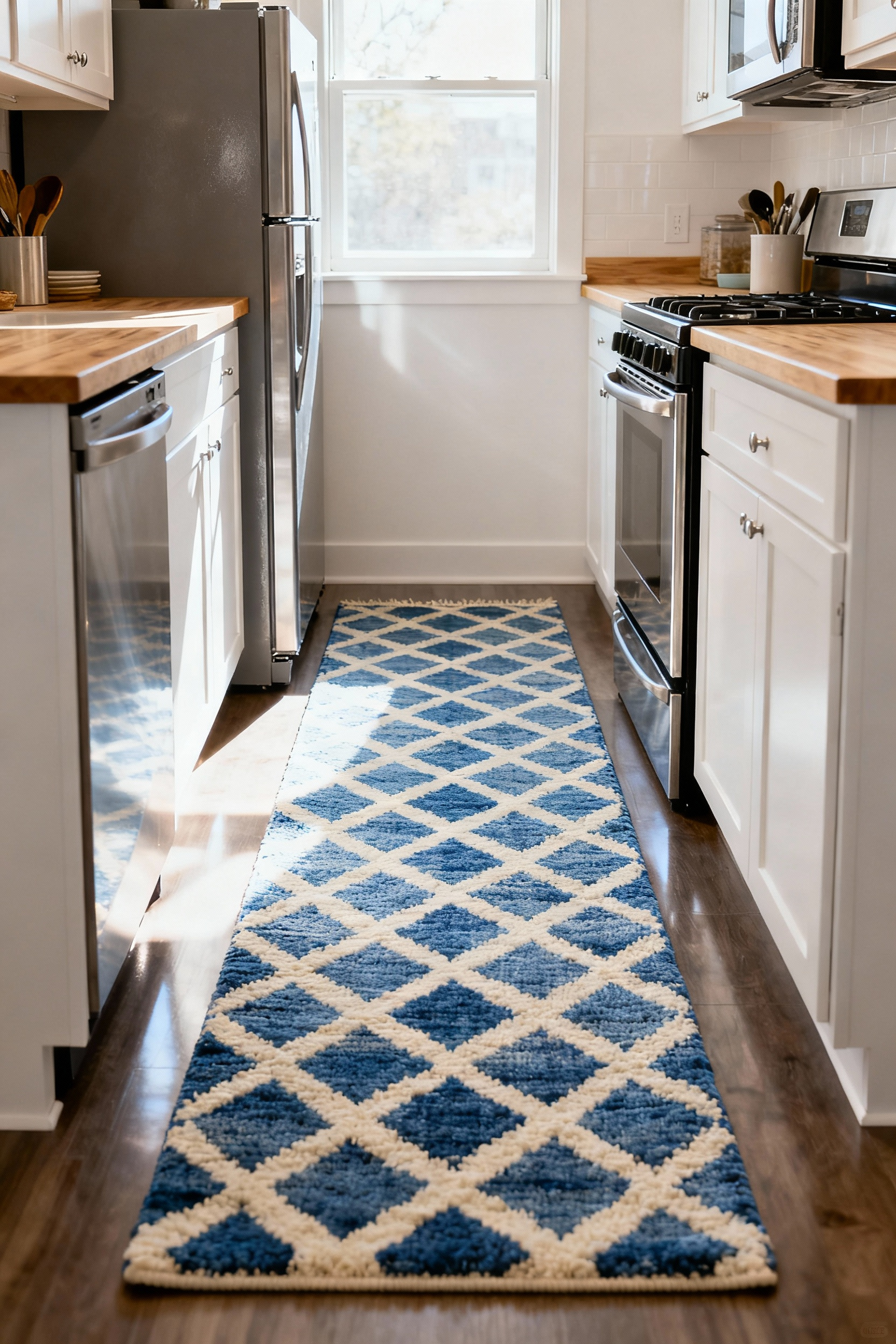
5. Bring in Some Greenery
Nothing breathes life into a space like a living plant. It’s an instant dose of color, texture, and good vibes. Your kitchen, with its water source and often-sunny windows, is the perfect spot for a little green friend. You can start as small as a single pot of herbs on the windowsill. There’s nothing better than snipping fresh basil for your pasta sauce! If you have more space, a trailing pothos on top of the cabinets or a collection of small succulents on a floating shelf looks incredible. If you’re like me and struggle to keep plants alive, don’t worry—there are tons of hardy, low-light options out there that are very forgiving.
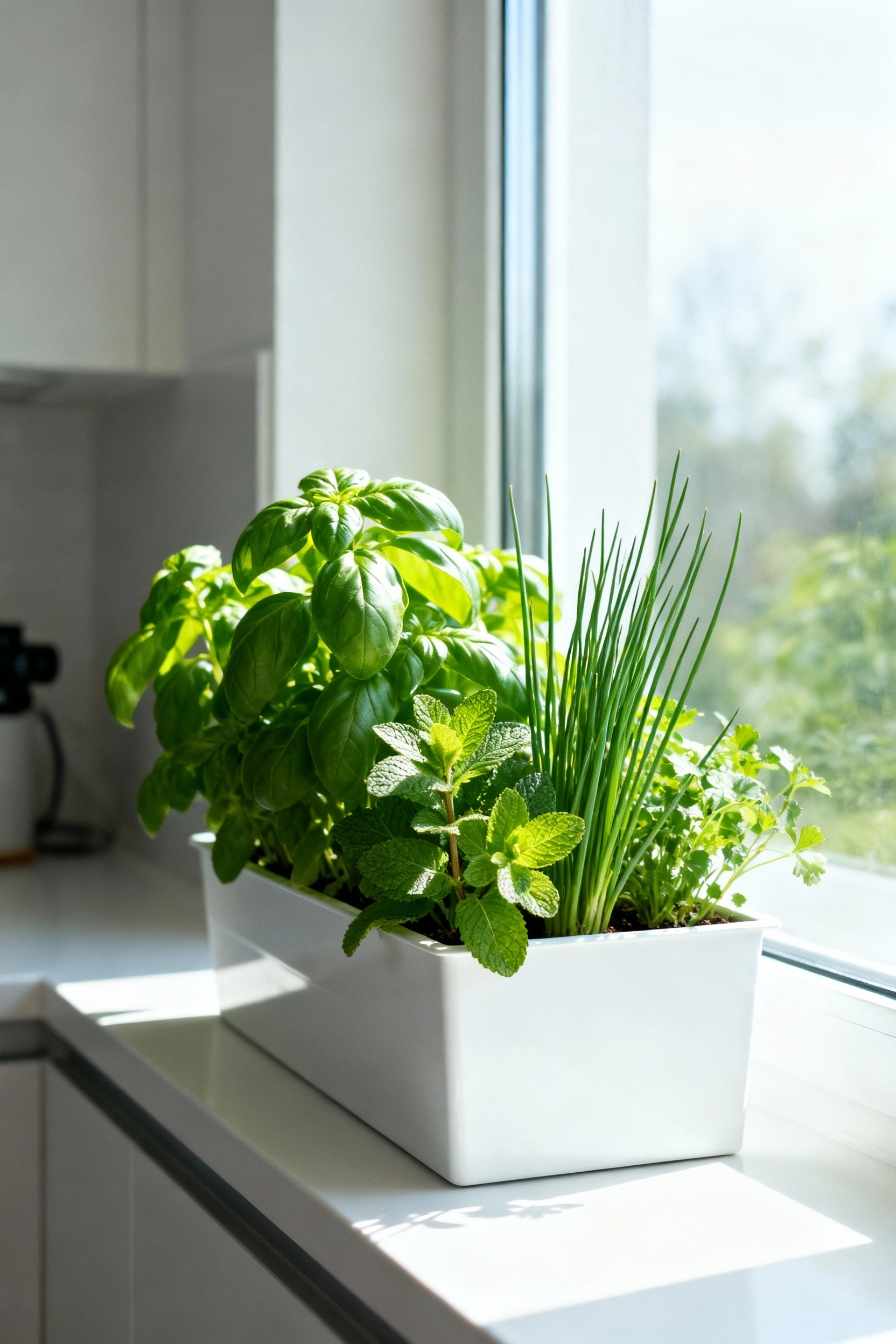
Next-Level Style: Bigger Impact Projects
Feeling confident? These ideas require a little more planning but offer a huge design payoff, turning your kitchen into a truly stylish and intentional space.
6. Curate a Cohesive Color Palette
As a former art teacher, this is where I get really excited! A thoughtful color palette is what makes a room feel cohesive and professionally designed. Think beyond just the wall color—consider your cabinets, countertops, backsplash, and even your small appliances. A great rule of thumb is the 60-30-10 rule. 60% of your room should be a dominant color (like your cabinets or walls), 30% a secondary color (maybe your countertops or a feature wall), and 10% an accent color (your hardware, textiles, or a vase of flowers). This simple formula creates balance and keeps the space from feeling too busy.
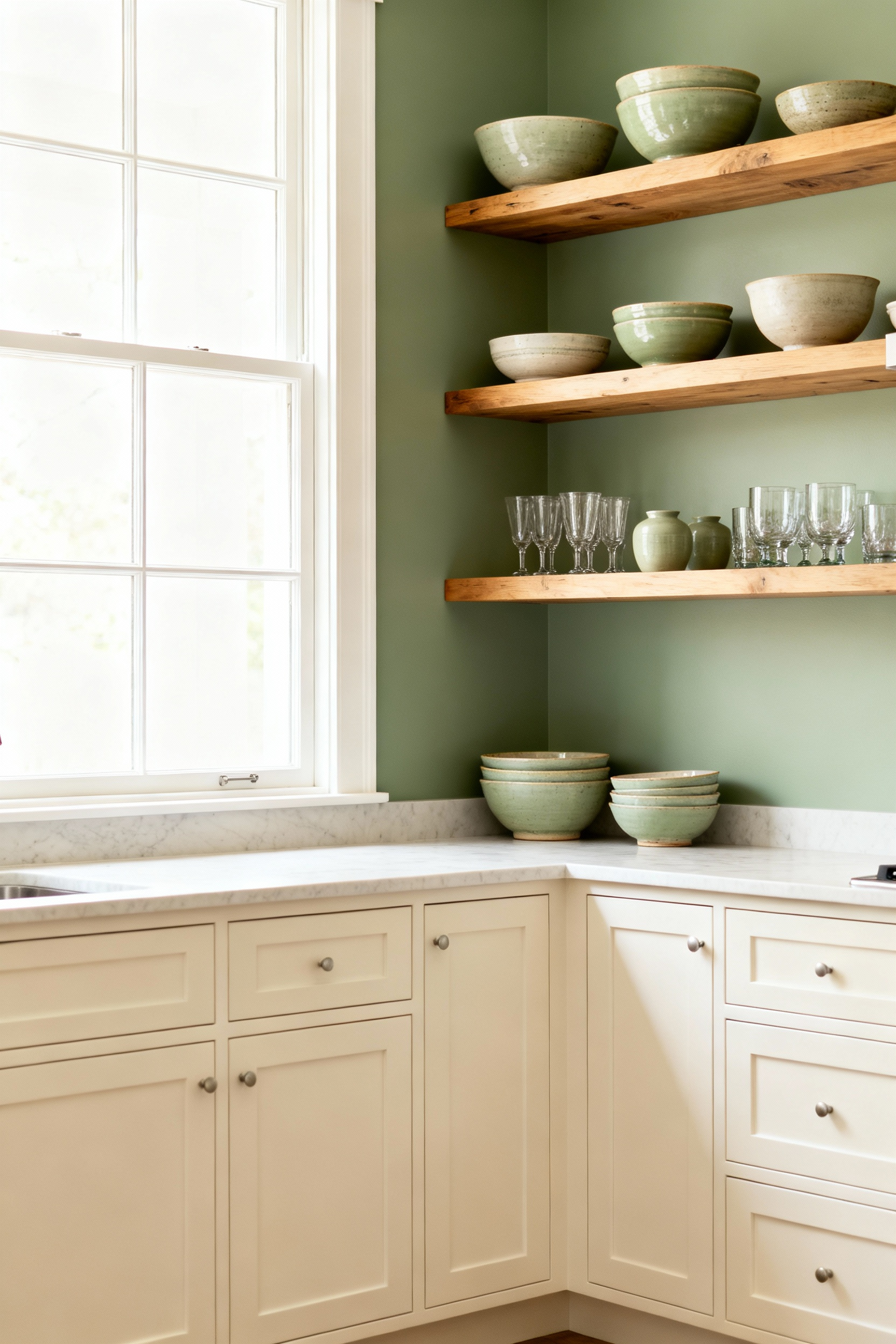
7. Maximize Vertical Space with Open Shelving
If you’re short on storage or just want to break up a wall of heavy-looking cabinets, open shelving is a beautiful solution. It forces you to be a little more organized, but the visual payoff is a lighter, airier kitchen with tons of personality. What I always tell my readers is to start small by replacing one or two upper cabinets with shelves. Put your everyday items there—the plates, glasses, and bowls you use constantly. That way, they never have time to get dusty! Mix in a few decorative objects like a plant or a piece of pottery to keep it from looking purely utilitarian.
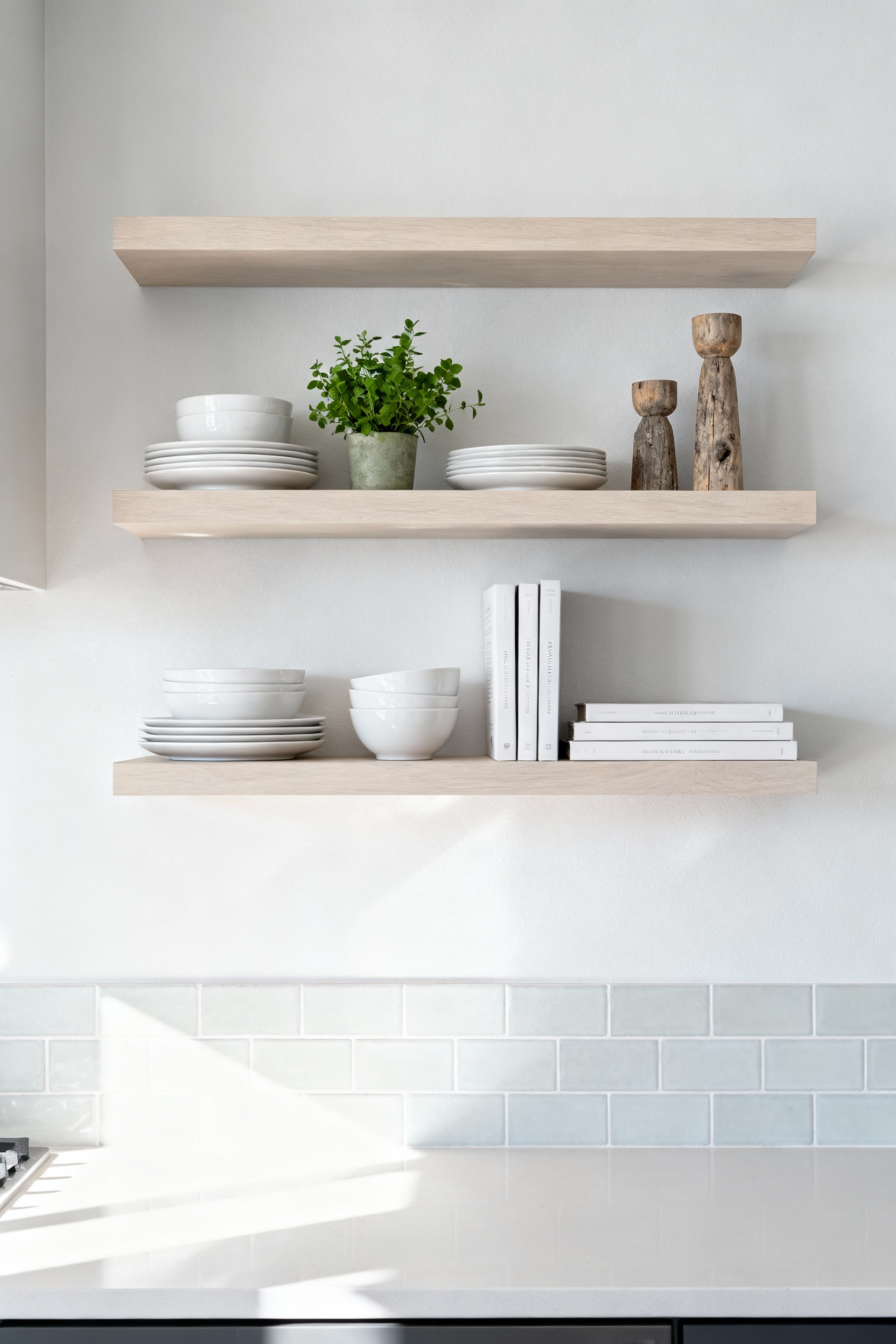
8. Craft a Cozy Breakfast Nook
Even the smallest kitchens can often accommodate a tiny spot for sipping coffee. Carving out a dedicated breakfast nook, no matter how small, makes a kitchen feel incredibly inviting and thoughtful. Look for an underutilized corner, especially one near a window. A small round bistro table and two chairs can instantly define the space. For a true built-in feel on a budget, you can install a simple floating bench against the wall. Add a comfy cushion and a few pillows, and you’ve created a charming destination that will quickly become the favorite spot in the house.
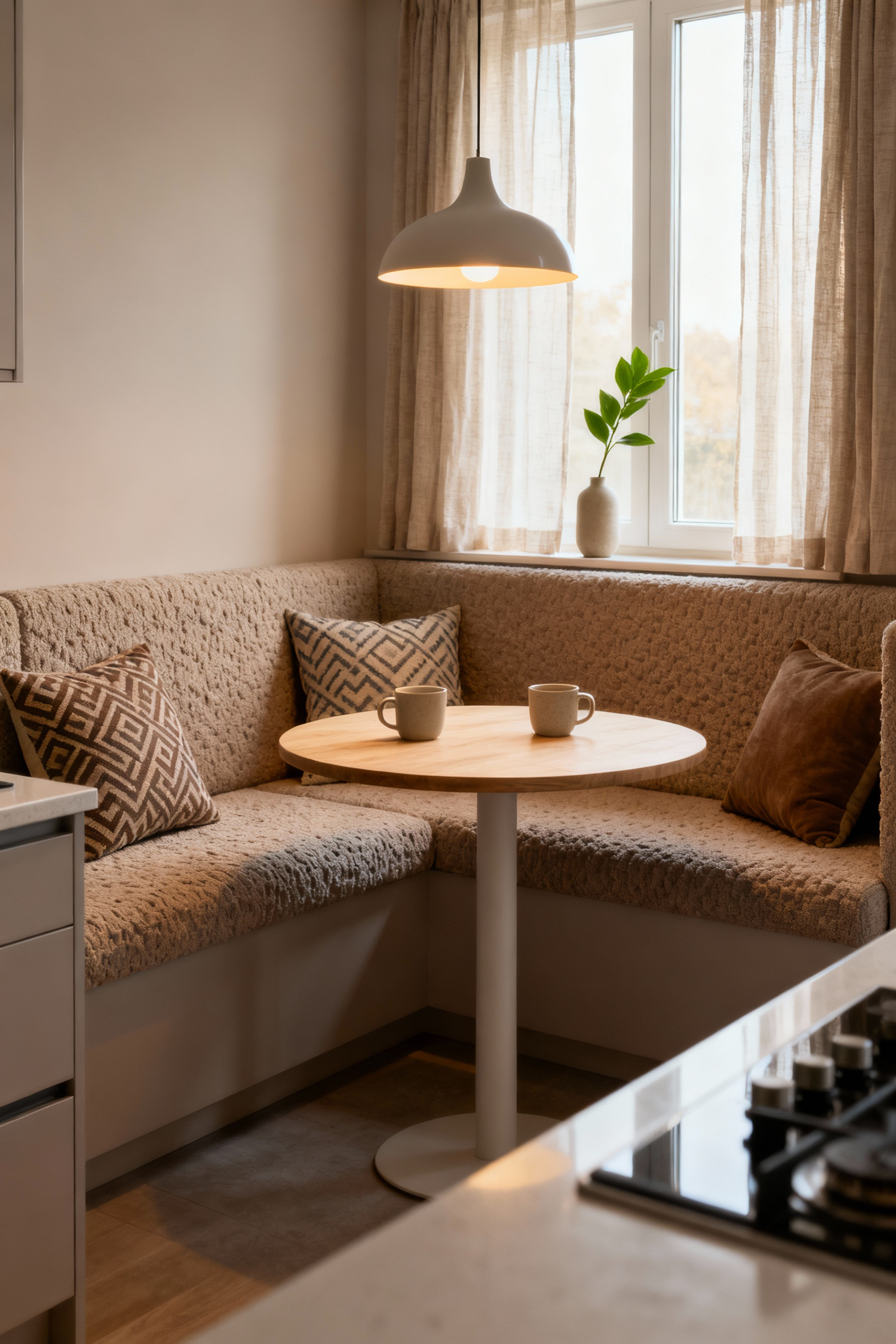
9. Add Architectural Interest
Many modern kitchens can feel a bit like plain boxes. Adding simple architectural details like crown molding or beaded paneling (beadboard) is a weekend project that adds instant character and a custom-built look. Crown molding can be added to the tops of your cabinets to make them look like they reach the ceiling—a classic high-end design trick. Beadboard is wonderful for adding texture to a kitchen island, a backsplash, or as wainscoting on the lower half of the walls. You can buy large panels of it at the hardware store, making installation much simpler than you’d think.
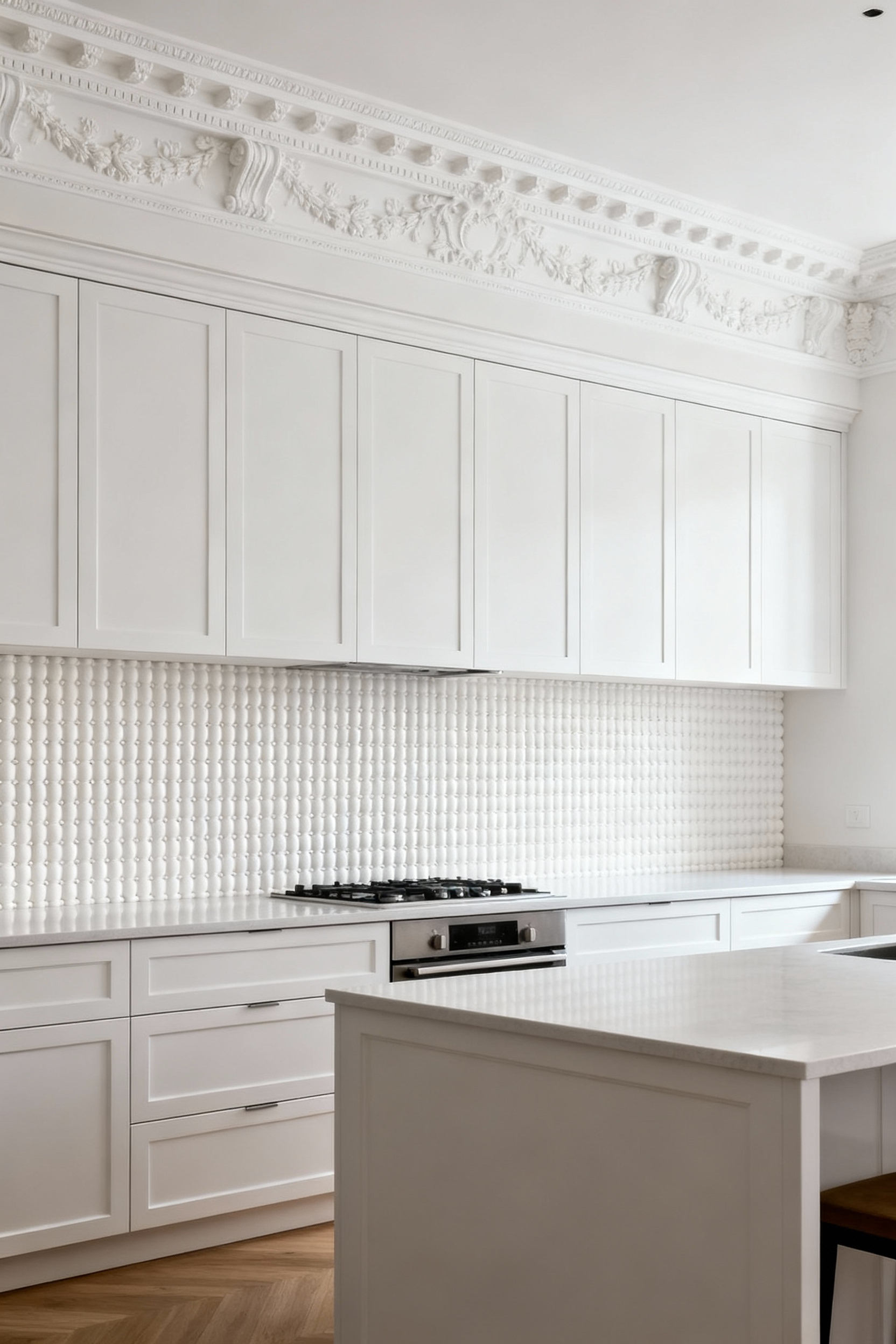
10. Install a Statement Backsplash
Think of your backsplash as the kitchen’s feature wall. It’s a relatively small area, so you can afford to be a bit bolder here with color, pattern, or texture than you might be elsewhere. It’s the perfect place to inject a major dose of your personality. These days, the options are incredible, especially for DIY-ers. Peel-and-stick tiles have gotten so good that they look just like the real thing, offering a low-commitment way to completely change the look of your kitchen. Whether you choose a classic subway tile in a fun color, a bold geometric pattern, or a textured natural stone, a new backsplash is a guaranteed “wow” moment.
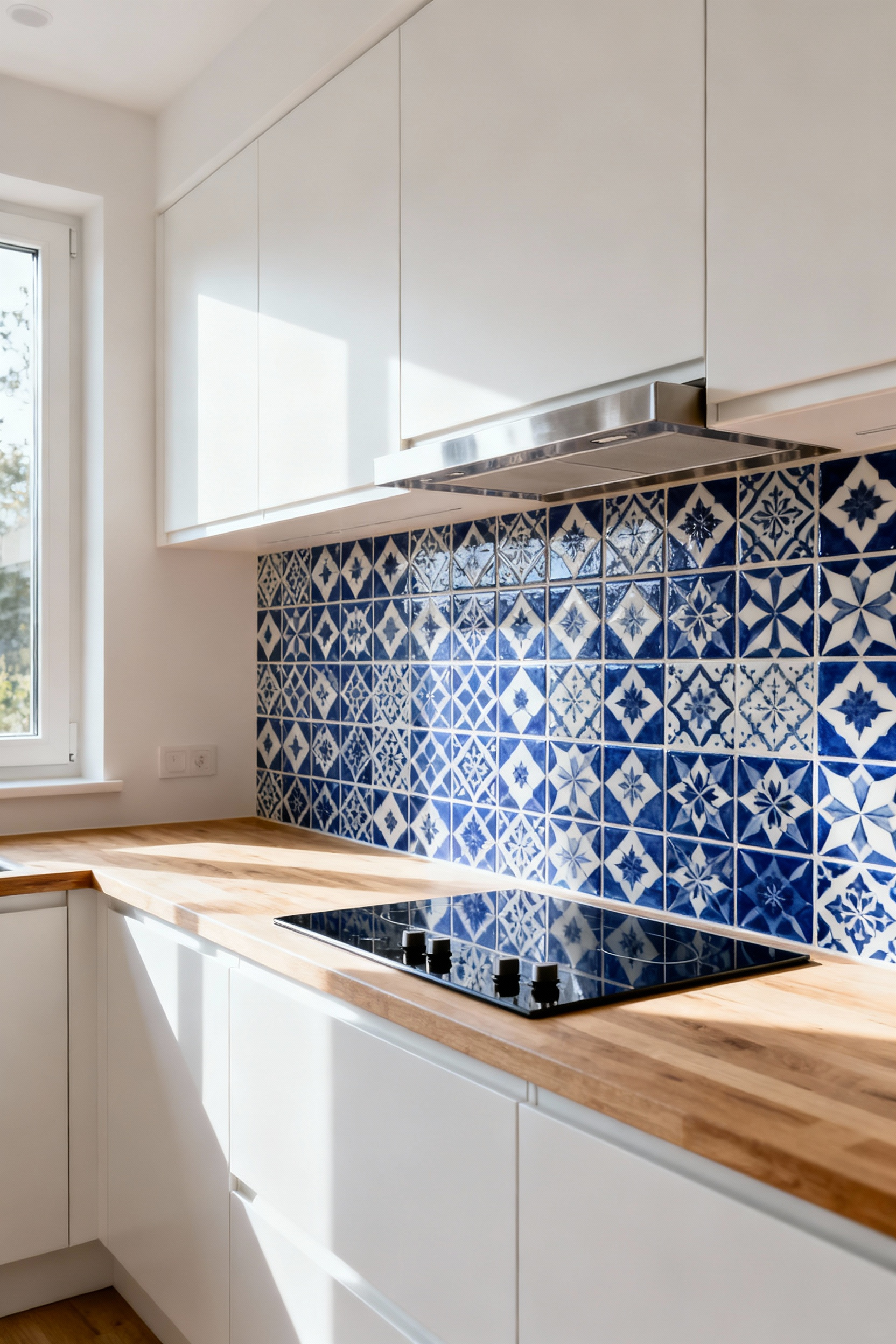
Thinking Like a Designer: Smart & Savvy Upgrades
Ready to think about the bigger picture? These strategies focus on how your kitchen functions and feels, blending smart planning with beautiful design for a truly optimized space.
11. Optimize Your Workflow Layout
The most beautiful kitchen in the world is frustrating if it doesn’t function well. Think about the “kitchen work triangle”—the path you walk between the refrigerator, sink, and stove. The goal is to make that path as short and unobstructed as possible. Take a minute to just observe how you cook a meal. Are you constantly walking back and forth across the room for things? A simple fix, like moving your trash can closer to your prep area or adding a small rolling cart for extra counter space right where you need it, can make a world of difference in your daily routine.
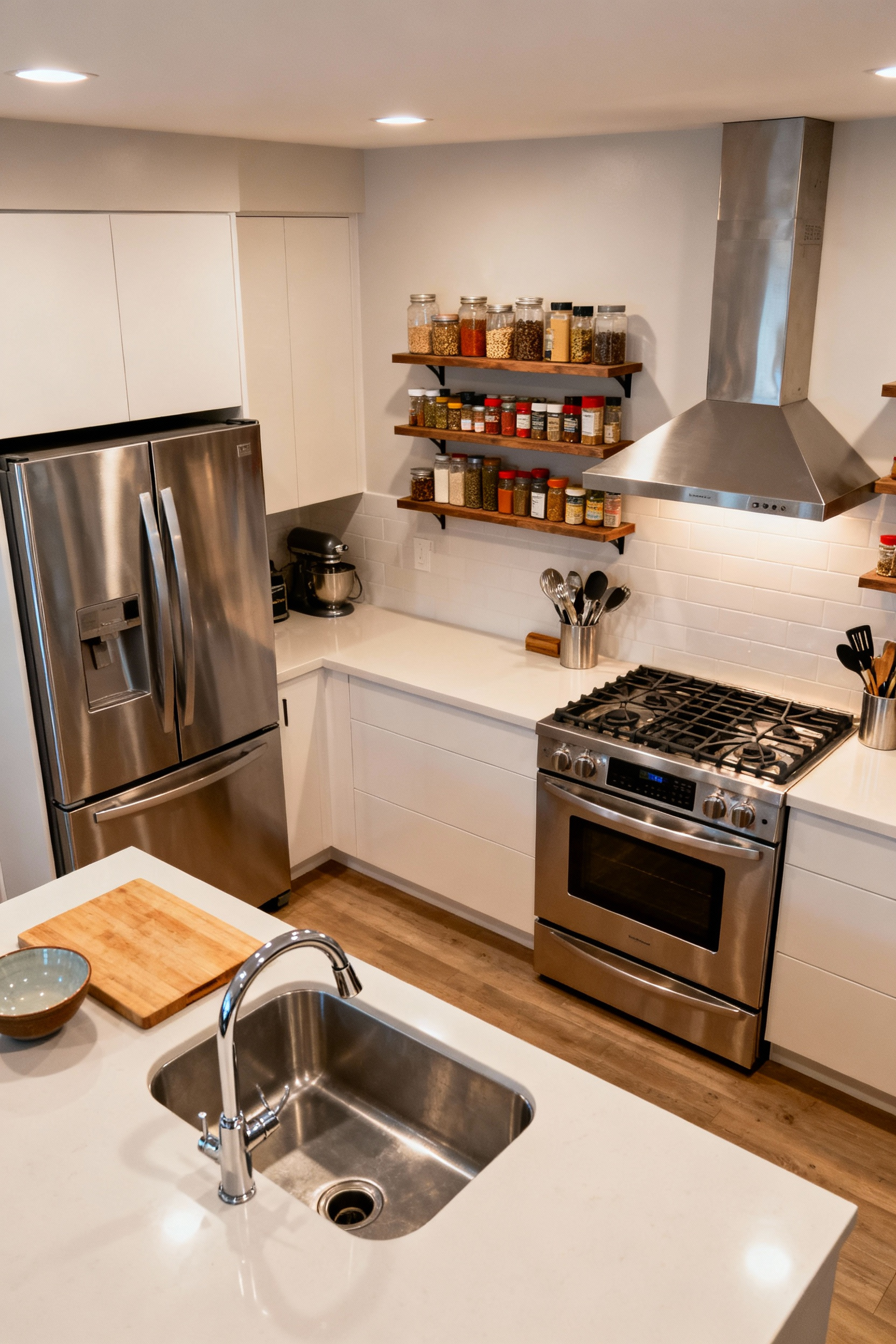
12. Integrate Simple Smart Technology
“Smart home” can sound intimidating and expensive, but it doesn’t have to be. You can start with simple, affordable tech that makes your life in the kitchen just a little bit easier and more pleasant. A smart plug, for example, costs less than a pizza and can turn any “dumb” appliance into a smart one. Plug your coffee maker into one, and you can schedule it to turn on automatically every morning. Smart light bulbs let you dim your lights or change their warmth using your phone or voice—perfect for shifting from bright “cooking mode” to soft “dinner mode.”
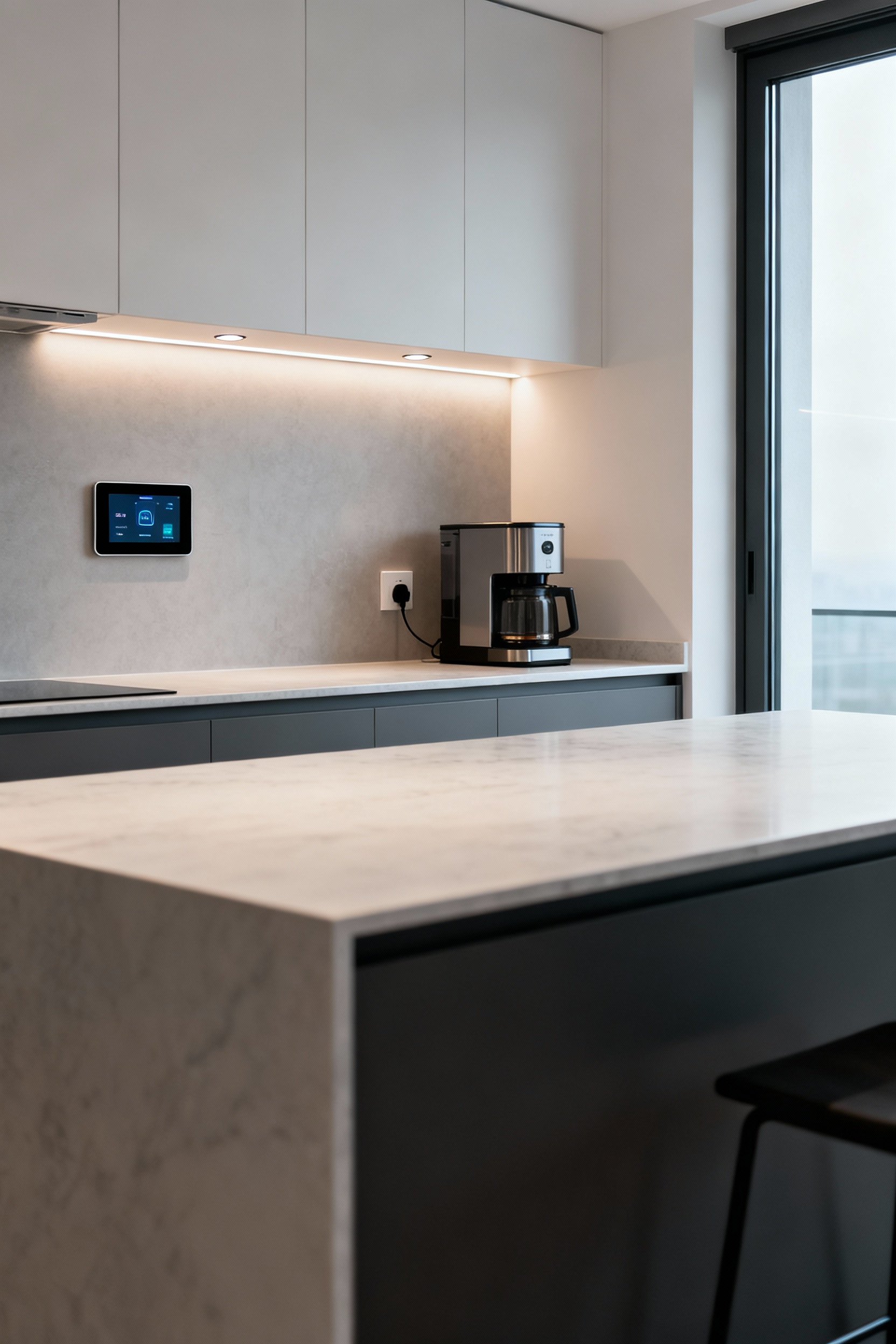
13. Layer Your Lighting
A single overhead light is the enemy of good kitchen design! A great kitchen needs layers of light, just like a great room needs layers of texture. Aim for three types: ambient (the overall light), task (focused light for work areas), and accent (light that highlights something pretty). Your main overhead fixture provides the ambient light. Under-cabinet lighting is your task light. Accent lighting could be a small lamp on the counter or a light inside a glass-front cabinet. Putting all of these on dimmer switches gives you complete control over the mood of your room. In my professional experience, this is the one thing that separates a good kitchen from a great one.
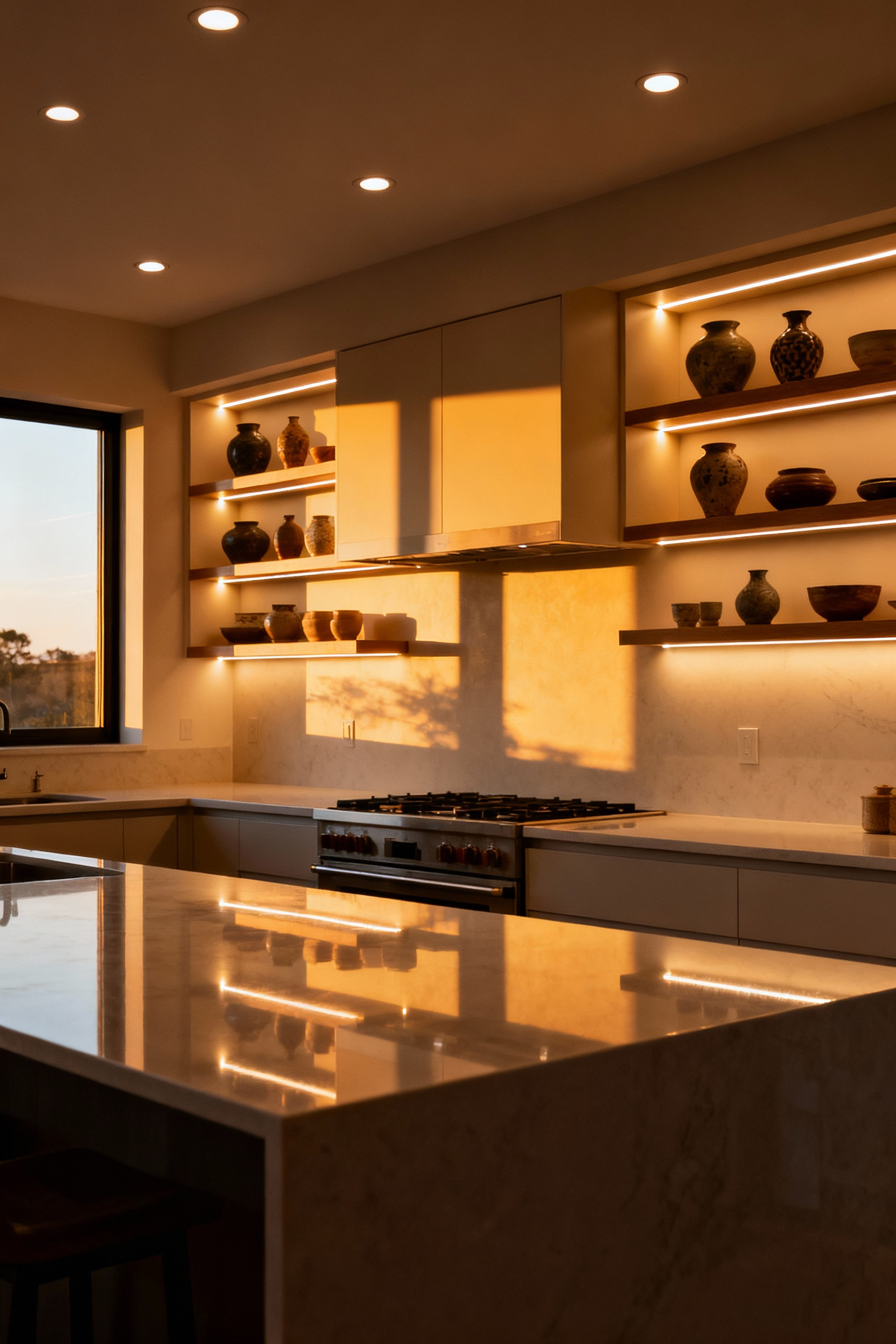
14. Get a Custom Look for Less
The word “custom” often sounds expensive, but it really just means “made to fit your space perfectly.” And you can get that bespoke feel without the bespoke price tag. What I learned from years of budget design is that you can often use stock items in clever ways. For example, build a custom-looking banquette for a breakfast nook using stock IKEA kitchen cabinets as the base for a bench—you get tons of hidden storage for free! Or, bridge the gap between your standard cabinets and the ceiling with a simple piece of MDF trim, then paint it all to match for a seamless, built-in look.
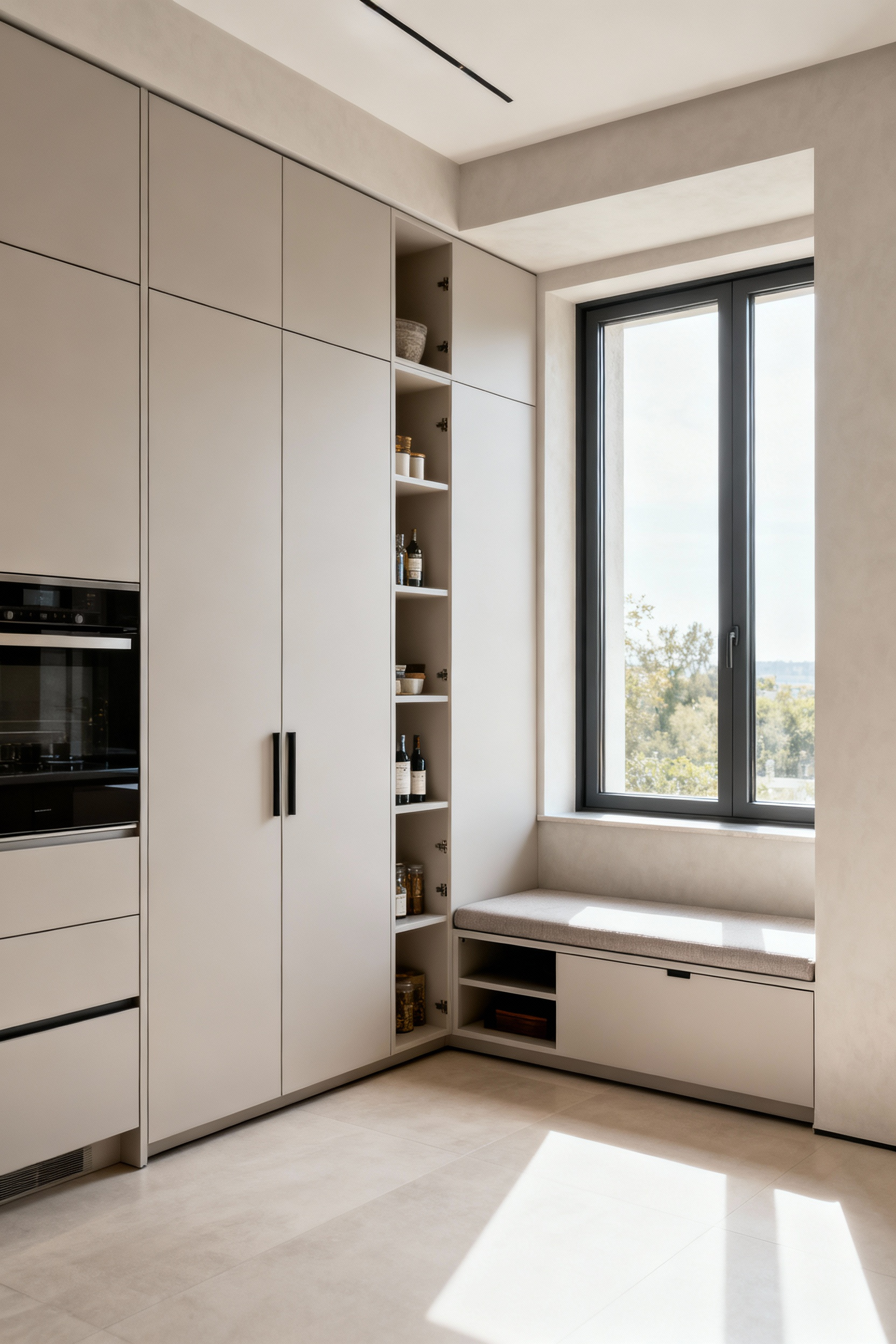
15. Design for the Future
When you’re making big investments in your kitchen, like countertops or flooring, it’s wise to choose timeless, neutral finishes. Classic subway tile, a simple quartz counter, or durable wood flooring will never go out of style. This gives you a beautiful, flexible canvas that you can easily update over the years. Save the trendy colors and patterns for the things that are easy and cheap to change out, like your wall paint, your dish towels, your light fixtures, or your cabinet hardware. That’s how you build a kitchen that can evolve with you.
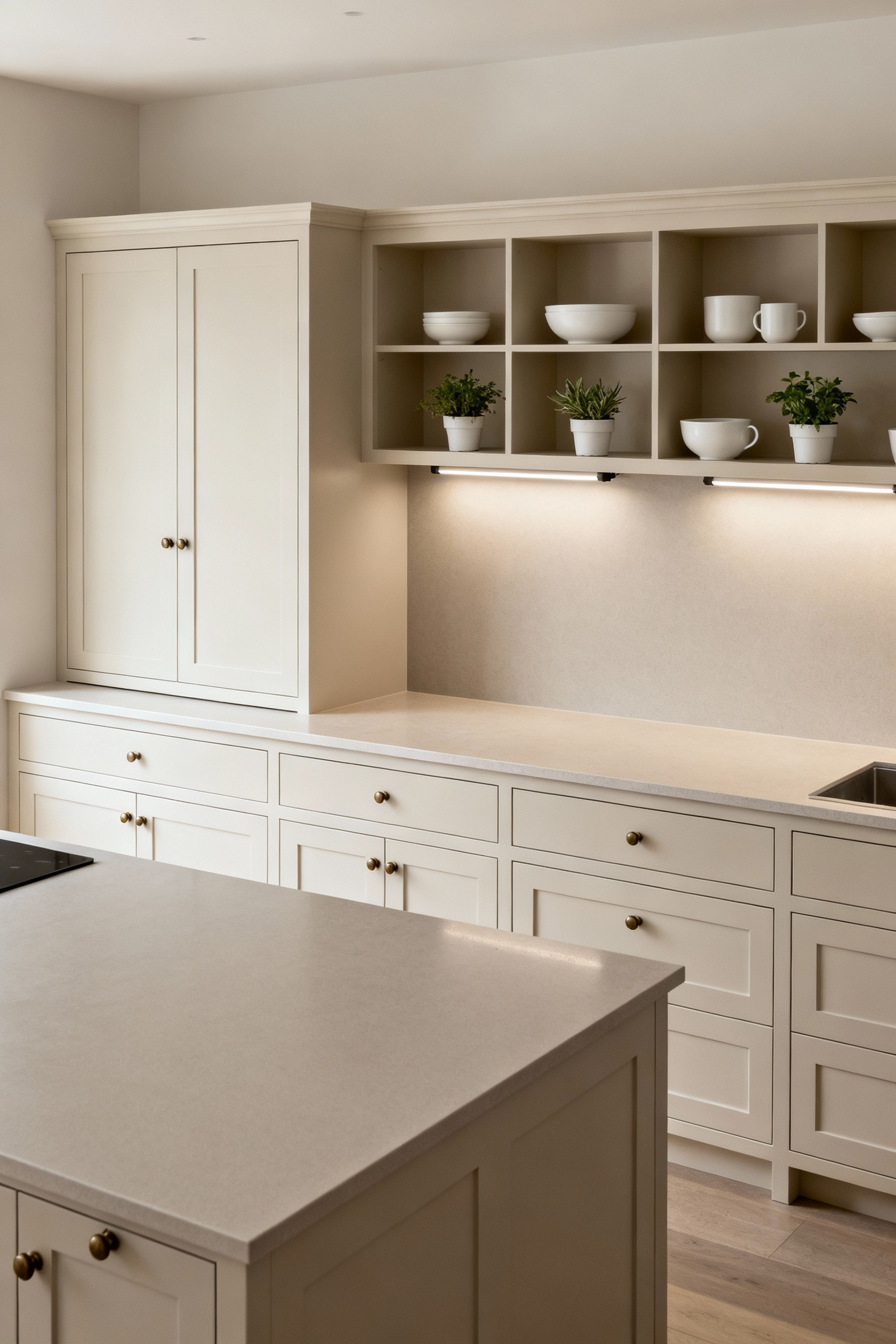
Creating a Cohesive Home: The Final Touches
This is where we bring it all together. These final ideas are about looking beyond the four walls of your kitchen and creating a space that feels deeply personal, comfortable, and beautifully connected to the rest of your home.
16. Harmonize with Adjacent Spaces
In an open-concept home, your kitchen doesn’t end at the edge of the tile. It’s part of a larger conversation with your dining and living areas. Creating a sense of flow between these spaces makes your whole home feel more cohesive and intentionally designed. The easiest way to do this is with color. Pull a color from your kitchen’s backsplash and repeat it in the throw pillows on your sofa. Or, make sure the metal finishes in your kitchen (like your faucet and hardware) match the curtain rods or picture frames in the living room. It’s these small, connecting threads that tie everything together.
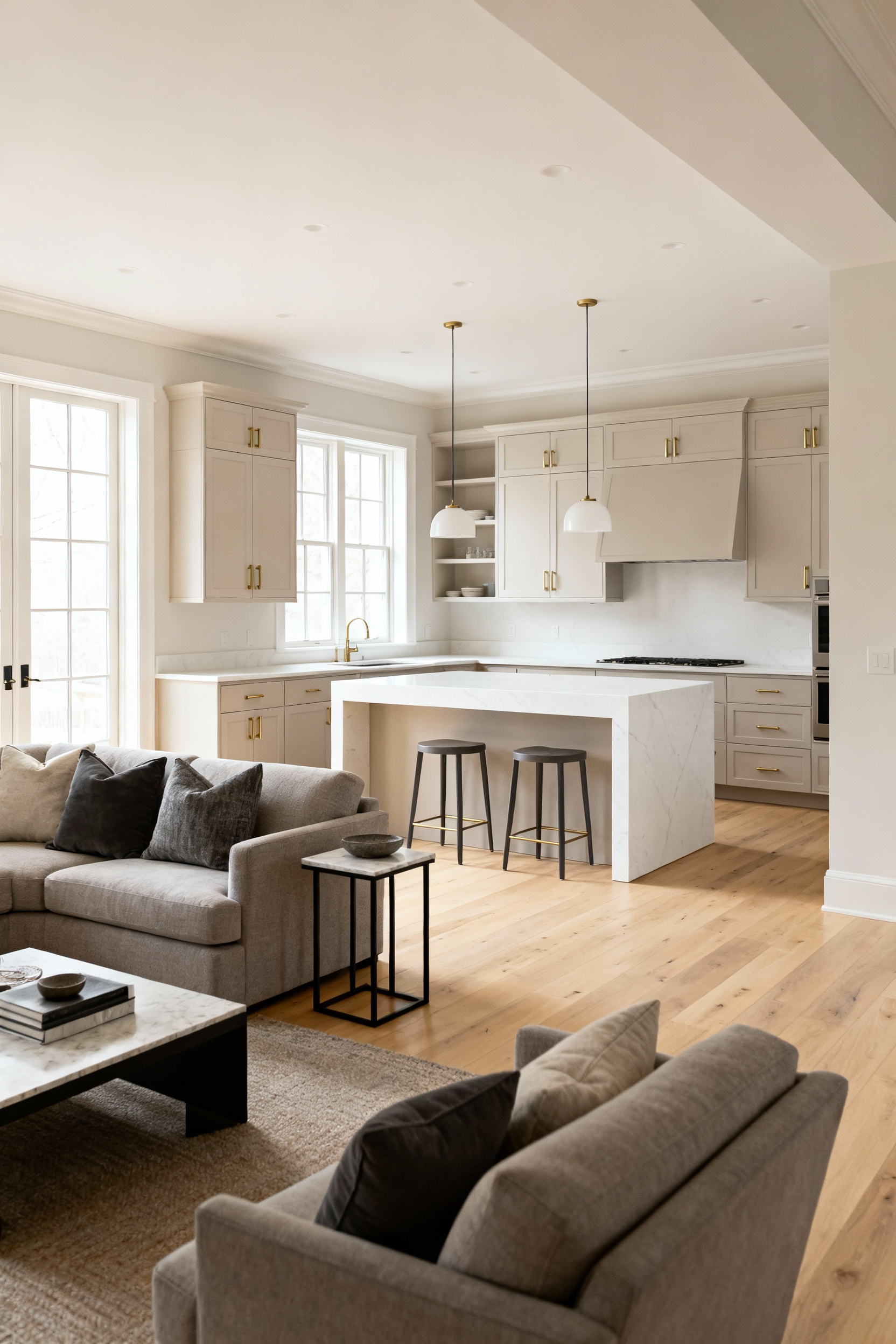
17. Choose Sustainable and Eco-Friendly Materials
A beautiful kitchen can also be a healthy and responsible one. There are more and more incredible, sustainable materials available that are both gorgeous and good for the planet. Look for countertops made from recycled materials, flooring made from renewable resources like cork or bamboo, and low-VOC paints that don’t release harmful fumes into your home’s air. These choices not only have a lower environmental impact but often add a unique texture and story to your space.
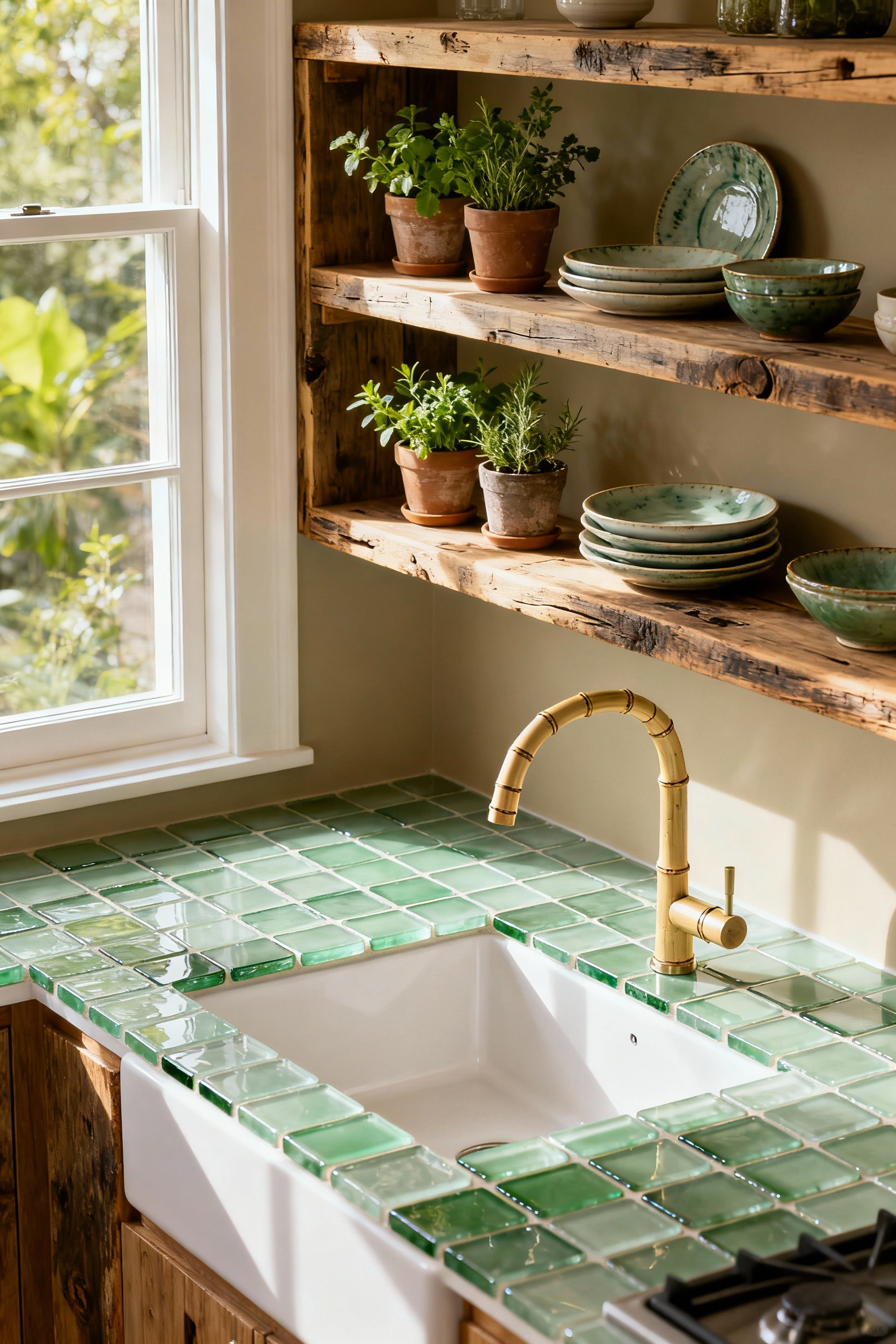
18. Make Room for Art and Collections
Who says art only belongs in the living room or hallway? Your kitchen is the heart of your home, and it should be filled with things that make you smile. Free up some wall space for a favorite painting, a framed photo, or even your kids’ drawings. Open shelves are perfect for displaying a collection of vintage pitchers, handmade pottery, or colorful cookbooks. Don’t be afraid to mix the practical with the personal. It’s these unique touches that keep a kitchen from looking like a generic showroom and transform it into a reflection of your life.
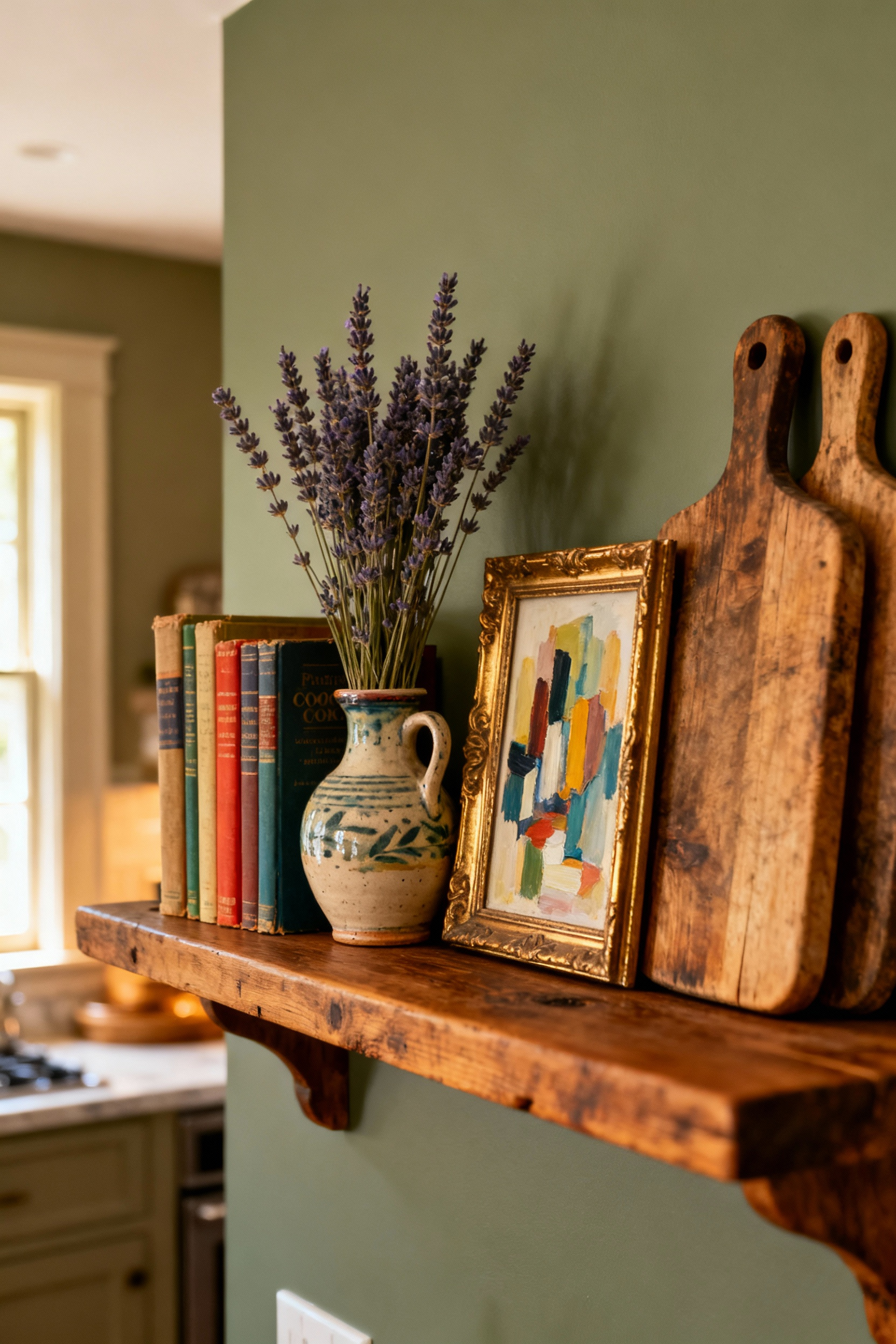
19. Engineer for Comfort (Even Acoustical!)
This is a pro-level tip that makes a huge difference in how your kitchen feels. Kitchens can be noisy, echoy places. By intentionally adding soft materials, you can absorb some of that sound and create a much calmer, more pleasant atmosphere. A rug or a runner is the most obvious fix, but fabric window treatments, upholstered chairs in a breakfast nook, or even a large corkboard for family notes can help dampen sound. It’s a subtle touch, but it’s one of the secrets to creating a space people naturally want to linger in.
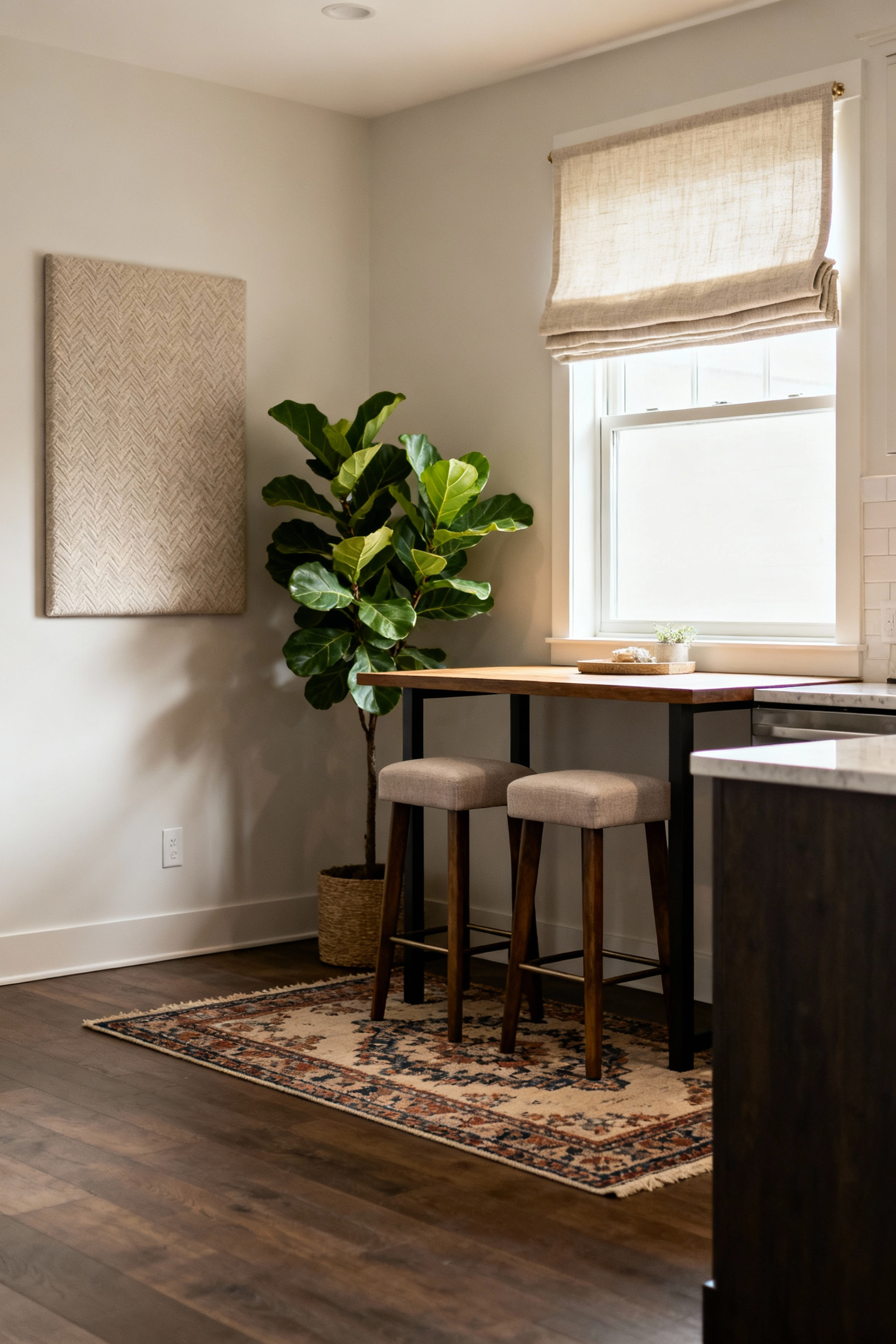
20. Embrace the “Wabi-Sabi” Philosophy
My favorite design philosophy of all is Wabi-Sabi, the Japanese art of finding beauty in imperfection. It’s a celebration of the authentic, the handmade, and the well-loved. In your kitchen, this means loving the nicks in your wooden farmhouse table, appreciating the slightly crazed glaze on a vintage bowl, and not worrying if your mugs don’t all perfectly match. It’s permission to have a real, lived-in home, not a sterile museum. It’s in those small imperfections that your kitchen’s true, unique story is told.
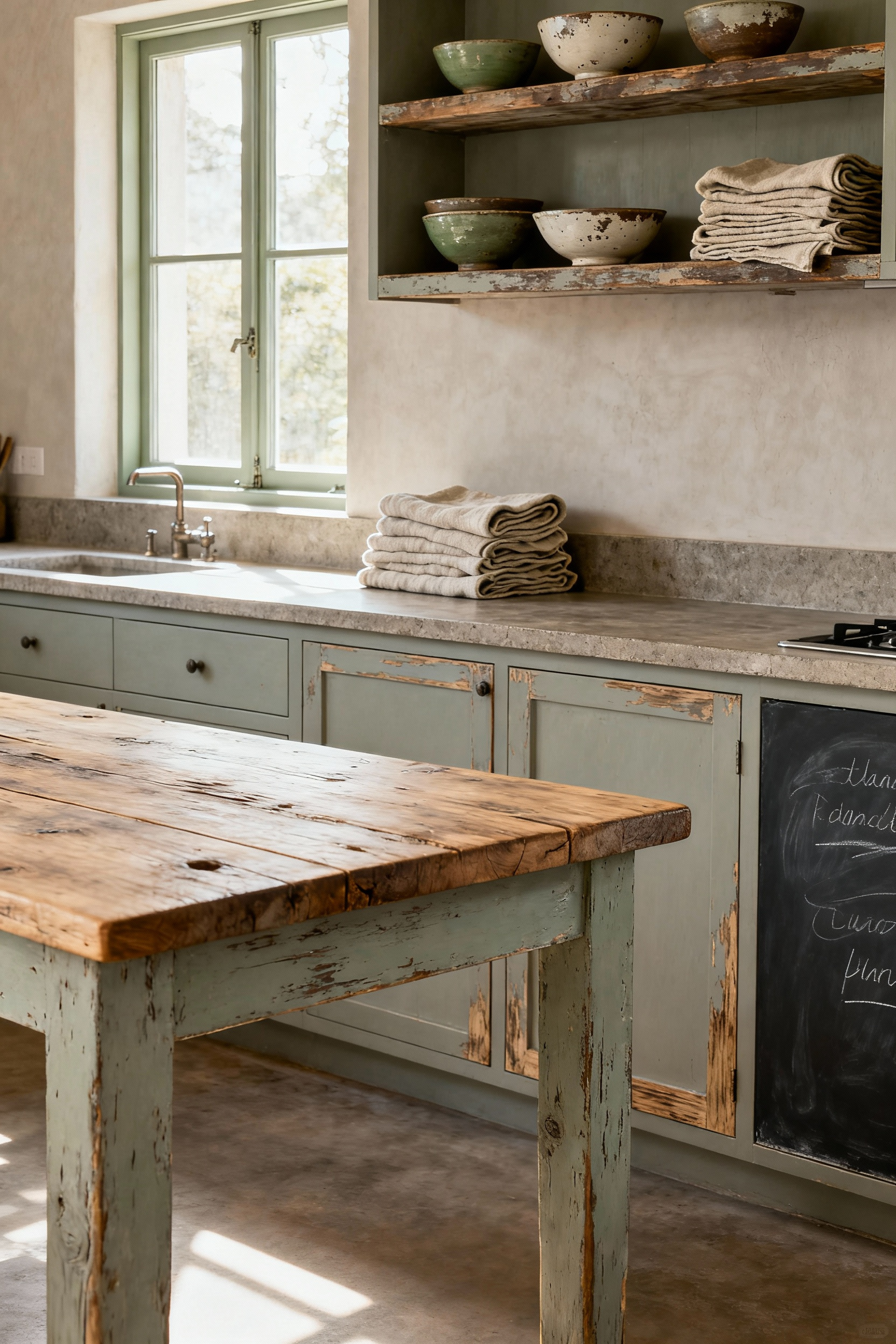
Conclusion
Whew! We’ve covered a lot of ground, from quick five-minute fixes to big-picture design thinking. My hope is that you’re feeling less overwhelmed and more excited by the possibilities hiding in your kitchen. The most important kitchen decorating inspiration will always come from your own life, your own tastes, and your own stories.
So please don’t feel like you have to do all 20 of these things! Just pick one. One idea that sparked a little bit of excitement. Start there. Whether you’re displaying your favorite mugs or finally tackling those tired old cabinets, every small step you take turns your kitchen into a space that doesn’t just serve you, but truly inspires you. You can do this, and I can’t wait to see what you create.
